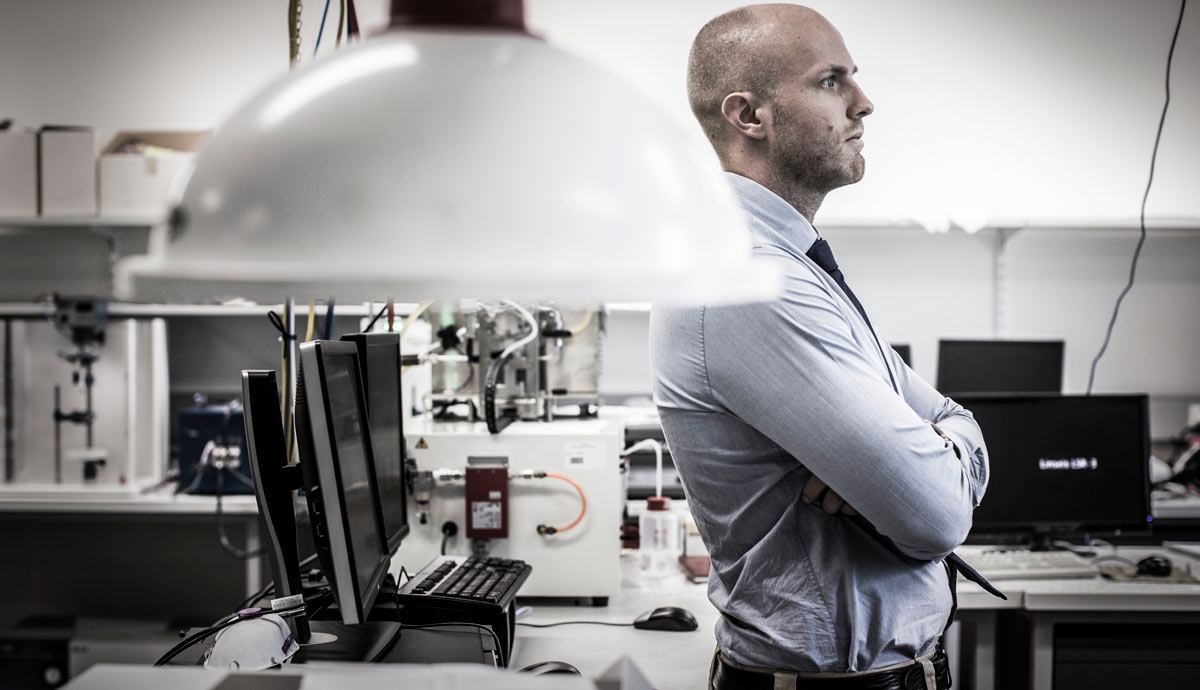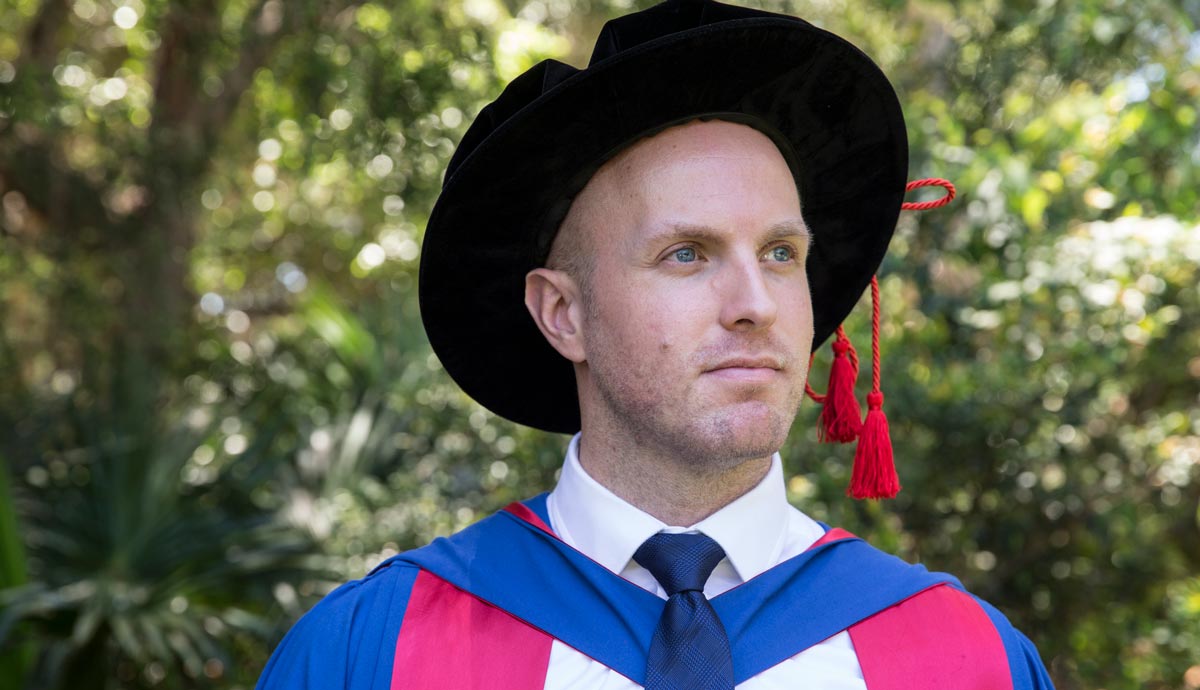December 14, 2017
Graduate’s research aims to revolutionise battery technology
PhD graduate discovers the long and winding road has many interesting detours and byways.
Jon Knott is running out of hats. From fronting the media to explain battery technology to setting up lab experiments, the electrical engineering PhD graduate has become something of a jack-of-all-trades.
“Where I am now is probably the result of loads of random paths and opportunities along the way,” Jon said.
Jon donned cap and gown today (14 December) to put a fullstop at the end of the student life that started as a UOW undergraduate in 2004.
At the time, he enrolled in a double degree, taking on mechatronic engineering and physics at UOW.
“My dad was a physicist so I always had an interest in that but he encouraged me to do something practical as well,” he said.
The Campbelltown student took a look at what other metro universities had to offer but settled on UOW after visiting the campus, and found a welcoming environment and an institution that had aspirations.
“I went to other open days but at UOW I could sense there was a genuine interest in me as a student.”
Through his degree he landed a job with a Southern Highlands transformer manufacturer and spent three years in industry, an experience he values highly.
“It’s great to get out and get that industry experience. I was working with 30-year veterans of the transformer industry and I learned a lot seeing how they approached and solved problems.
“At the same time I always knew I wanted to do a PhD and to be at the cutting-edge of creating new knowledge so when an opportunity came up to an industry-based PhD I jumped at it.”
The PhD, started in 2010, placed him with a small business designing and manufacturing products for the electricity distribution industry as well as coming under the supervision of Distinguished Professor Shi Xue Dou at UOW’s Institute for Superconducting and Electronic Materials (ISEM).
When the company folded he joined ISEM full time, though he has no regrets about the experience it afforded him.
“I was supposed to just do the thermal simulation on one particular component. That was my entire PhD focus. What I ended up doing was thermal simulation, mechanical simulations, component design and build, testing and a whole range of things simply because I said, ‘that looks interesting, I’ll have a go’.”
That can-do attitude has been part of the reason he’s had so many hats to wear, including spending the past 18 months juggling his PhD while filling the role as project manager on a $10.6 million project to develop sodium-ion batteries for large scale renewable storage.
The project takes the fundamental research and looks for a commercial output. The Australian Renewable Energy Agency (ARENA) kicked the tin for $2.7 million to help the potentially game-changing technology find its way from idea to innovation.
The end-game is to develop modular, expandable sodium-ion batteries optimised for renewable energy applications.

“It’s exciting because it has the potential to fundamentally change how we use energy and it’s relevant to thousands of people,” Jon said.
On this project his hat collection has grown, taking on duties in project management, finance, procurement, media engagement, presenting research to potential research partners - the list goes on.
“Being able to speak the language of so many different professions is definitely keeping me in a job. But without the PhD experience I might not have a good handle on that dynamic.”
Completing a Graduate Certificate in Innovation in 2015 opened more doors and led to further opportunities in Jon’s career, solidifying his desire to work in research that pushes the boundaries of new technology and which can lead to real-world product development.
“It’s a fantastic environment to work in. Everyday someone shows me something inspiring. I didn’t want to stop discovering new things and writing papers, I wanted to take the idea or the technology further down the chain towards becoming a product and that’s a process I now really enjoy.
While his PhD comes to an end after a long and winding road with several detours, Jon said each and every path has taught him something new and he wouldn’t change the route he’s taken.
“In many ways, the social connections, the professional networks you develop are just as important as the technical knowledge you gain.
“I’d encourage any PhD student to take every opportunity to learn something new. It’ll serve you well in the long-run.”
